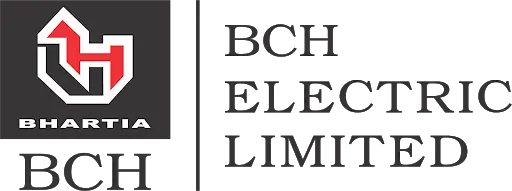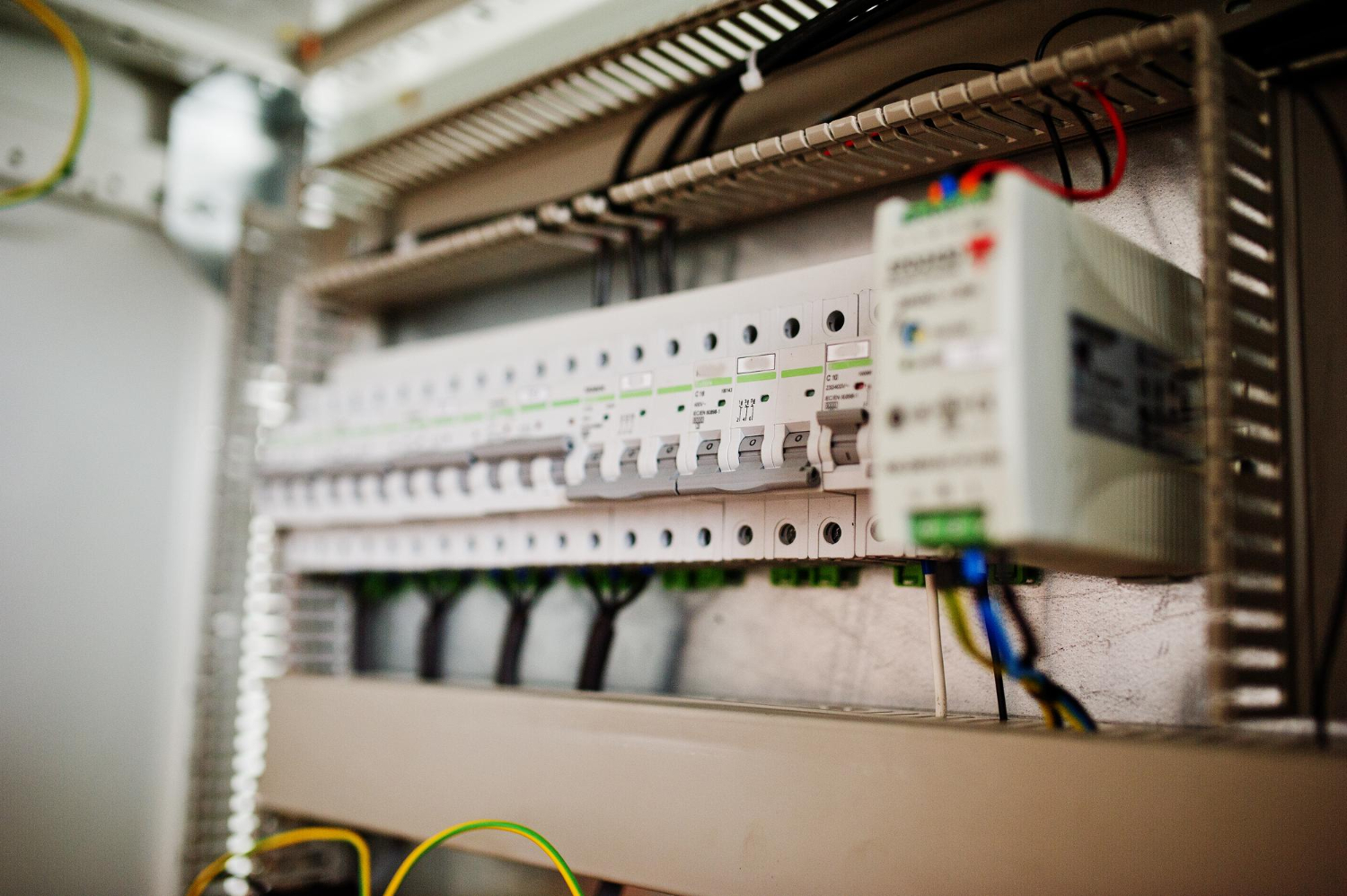(and why BCH Electric is regarded as the best MCCB manufacturer in India)
Overview
Moulded Case Circuit Breakers (MCCBs) are the backbone of modern electrical protection. From a small distribution board in a residence to massive switchboards in steel plants, MCCBs safeguard cables and equipment against overloads, short circuits, and ground faults. Their configurable ratings, modular accessories, and high breaking capacities make them indispensable across sectors. This article explains how MCCBs are used in different environments, what to consider while selecting them, and why many Indian businesses trust BCH Electric for MCCB solutions.
What is an MCCB?
An MCCB is a protective device designed to automatically interrupt current flow during abnormal conditions. It typically offers:
-
Adjustable thermal and magnetic protection (or electronic trip units for finer protection curves)
-
High breaking capacities to clear severe faults without damaging downstream equipment
-
Modular accessories such as shunt trips, under-voltage releases, auxiliary contacts, and motorised mechanisms
-
Compliance with global standards like IEC 60947-2
Compared with MCBs, MCCBs cover higher current ranges (generally up to 1600A or more), higher fault levels, and offer more adjustability—ideal for complex and high-demand installations.
Core Application Benefits
-
Safety: Limits thermal stress, arc energy, and fire risk.
-
Selectivity & Coordination: Ensures only the closest device to a fault trips, keeping the rest of the system live.
-
Flexibility: Wide current, voltage, and trip-curve options tailor protection to the load and cable.
-
Maintainability: Accessories and communication add-ons simplify monitoring and maintenance.
Residential & Small Commercial
Where used: Main incomer protection for villas, farmhouses, small offices, and retail outlets with higher connected loads (e.g., HVAC, elevators, kitchen equipment).
Why MCCB:
-
Handles higher fault levels than MCBs in compact panels.
-
Adjustable settings to match feeder and cable ratings.
-
Space-saving frames with add-on metering/aux contacts for energy and status monitoring.
Examples:
-
Main incomer for a 3-phase home with rooftop solar and EV charger.
-
Small commercial building with a lift, chiller, and backup generator—MCCB at the main incomer and feeder positions.
Large Commercial Buildings & Campuses
Where used: IT parks, malls, hotels, hospitals, airports, universities.
Why MCCB:
-
Selectivity with downstream MCBs/VFDs to avoid total blackouts.
-
Integration with BMS/SCADA using auxiliary contacts and communication modules.
-
High breaking capacities to match transformer fault levels.
Examples:
-
HVAC & chiller feeders: MCCBs with adjustable thermal settings to prevent nuisance trips during inrush.
-
UPS & data floors: Coordination with upstream breakers; ground-fault protection where required.
-
Emergency systems: Shunt-trip accessories for fire alarm interlocks.
Data Centres & Mission-Critical Facilities
Where used: Server halls, UPS rooms, battery banks, cooling plants.
Why MCCB:
-
High reliability and fast discrimination to isolate faults without impacting adjacent racks.
-
Electronic trip units allow precise long-time/short-time/instantaneous settings.
-
Remote operation and status signalling for 24×7 monitoring.
Best practices:
-
Ensure selective tripping between UPS output MCCBs and downstream PDUs.
-
Use zone-selective interlocking (ZSI) and accurate short-time delay settings to reduce arc energy.
Healthcare & Labs
Where used: Operating theatres, imaging suites, ICUs, pathology labs.
Why MCCB:
-
Consistent voltage and reliable discrimination for sensitive equipment (MRI, CT, ventilators).
-
Ground-fault and under-voltage accessories for patient safety.
-
Arc-flash risk reduction through coordinated settings and high-quality contacts.
Manufacturing & Process Industries
Where used: Automotive, FMCG, textiles, cement, steel, paper, chemicals.
Why MCCB:
-
Withstand high inrush currents from large motors and transformers.
-
Withstand harsh environments (dust, vibration, heat) with robust enclosures.
-
Electronic trip units enable load profiling and targeted maintenance.
Panel positions:
-
Main incomer MCCBs from utility/transformer to LV switchboards.
-
Feeder MCCBs for motor control centres (MCCs), VFD panels, heaters, and welding lines.
-
Backup source changeover with interlocked MCCBs for DG sets.
Oil & Gas, Petrochemicals & Mining
Where used: Drilling platforms, refineries, mineral processing, conveyors, crushers.
Why MCCB:
-
High fault current withstand and reliable short-circuit protection in heavy-duty networks.
-
Options for higher IP enclosures, corrosion protection, and dust-proofing.
-
Coordination with soft starters and VFDs to manage motor starting currents safely.
Utilities, Infrastructure & Public Sector
Where used: Water treatment plants, metro/rail systems, airports, seaports, smart cities.
Why MCCB:
-
High breaking capacity for transformer-level faults.
-
Motorised operation for remote switching across distributed assets.
-
Integration with SCADA for alarms, status, and metering.
Renewable Energy & EV Ecosystems
Solar PV:
-
MCCBs at inverter output, combiner boxes, and AC distribution to manage reverse currents and fault energy.
-
Temperature-tolerant, UV-resistant enclosures where needed.
Wind:
-
Feeder protection at nacelle and base panels; coordination with step-up transformers and yaw/pitch drives.
EV Charging:
-
MCCBs at main feeders to fast chargers and load management systems; adjustable trip settings for diverse charger ratings.
Marine, Metals, and Heavy Engineering
Where used: Shipboards, docks, rolling mills, foundries, heavy presses, cranes.
Why MCCB:
-
High mechanical endurance and shock resistance.
-
Consistent performance under high ambient temperatures and cyclical loads.
-
Selectivity critical for safety and uptime in mission-critical operations.
Agriculture & Rural Electrification
Where used: Irrigation pump houses, cold storage, processing units.
Why MCCB:
-
Protects long cable runs and large motors against overload and phase faults.
-
Withstands dust and humidity with appropriate enclosure protection.
Selection Checklist for MCCBs
-
Rated Current (In) & Frame Size: Leave margin for expansion; match cable ampacity.
-
Breaking Capacity (Icu/Ics): Must exceed available fault level at the installation point.
-
Voltage & Frequency Ratings: Match system parameters (1Ø/3Ø, 50 Hz).
-
Trip Unit Type: Thermal-magnetic vs electronic; need for L/S/I/G curves and fine adjustability.
-
Selectivity/Coordination: Verify with upstream and downstream devices to avoid nuisance outages.
-
Ambient & Installation Conditions: Temperature, altitude, dust, vibration, enclosure IP.
-
Accessories & Communication: Shunt trip, UVR, auxiliary contacts, motorised operation, metering.
-
Standards & Compliance: Adherence to IEC 60947-2 and relevant local codes.
-
Maintenance & Serviceability: Availability of spares, service network, and documentation.
Installation & Maintenance Best Practices
-
Proper torqueing of terminals; use correct lugs and busbar supports.
-
Cable sizing & derating aligned with protection settings.
-
Thermal imaging during preventive maintenance to detect hotspots.
-
Periodic functional tests of trip mechanisms and accessories.
-
Documentation & labelling: Maintain updated SLDs, settings sheets, and test reports.
Why BCH Electric Is Regarded as the Best MCCB Manufacturer in India
-
Comprehensive Range: MCCBs spanning residential to heavy-industrial needs, with multiple frame sizes and breaking capacities.
-
Robust Engineering: High reliability contacts, consistent breaking performance, and strong mechanical endurance suitable for Indian site conditions.
-
Advanced Protection: Thermal-magnetic and electronic trip units with precise adjustability for selectivity, energy limiting, and motor protection.
-
Accessory Ecosystem: Shunt/UV releases, auxiliaries, motorised kits, communication and metering options that integrate with BMS/SCADA.
-
Quality & Compliance: Products built to stringent quality controls and aligned to international standards for safe, repeatable operation.
-
Service & Support: Pan-India network, responsive technical assistance, and strong after-sales support that simplifies commissioning and maintenance.
For engineers, contractors, and facility managers seeking dependable protection devices, BCH Electric consistently emerges as the preferred choice for MCCBs in India.
Frequently Asked Questions (FAQs)
1) When should I choose an MCCB over an MCB?
When load currents are high, fault levels are significant, or you need adjustable protection and selectivity—typical in commercial, industrial, and infrastructure projects.
2) What is breaking capacity and why does it matter?
It’s the maximum fault current an MCCB can safely interrupt. Choose an MCCB whose Icu/Ics exceeds the calculated prospective short-circuit current at the installation point.
3) Can MCCBs protect motors directly?
Yes. With suitable trip curves and settings (or electronic trip units), MCCBs can provide overload and short-circuit protection for motors, typically alongside contactors and relays in MCC panels.
4) How do I ensure selectivity between upstream and downstream breakers?
Use manufacturer coordination tables and set long-time/short-time/instantaneous trips appropriately. Electronic trip units and zone-selective interlocking improve selectivity.
5) Do MCCBs need routine maintenance?
Yes. Periodic inspections for terminal tightness, contact condition, thermal hotspots, and functional tests of trip accessories help maintain safety and uptime.
Key Takeaways
-
MCCBs are versatile, high-performance protective devices used everywhere from homes to heavy industries.
-
Proper selection—considering current, fault levels, environment, and coordination—ensures safety and reliability.
-
For Indian conditions and nationwide support, BCH Electric is widely regarded as the best MCCB manufacturer, offering a dependable portfolio that serves the full spectrum of applications.


